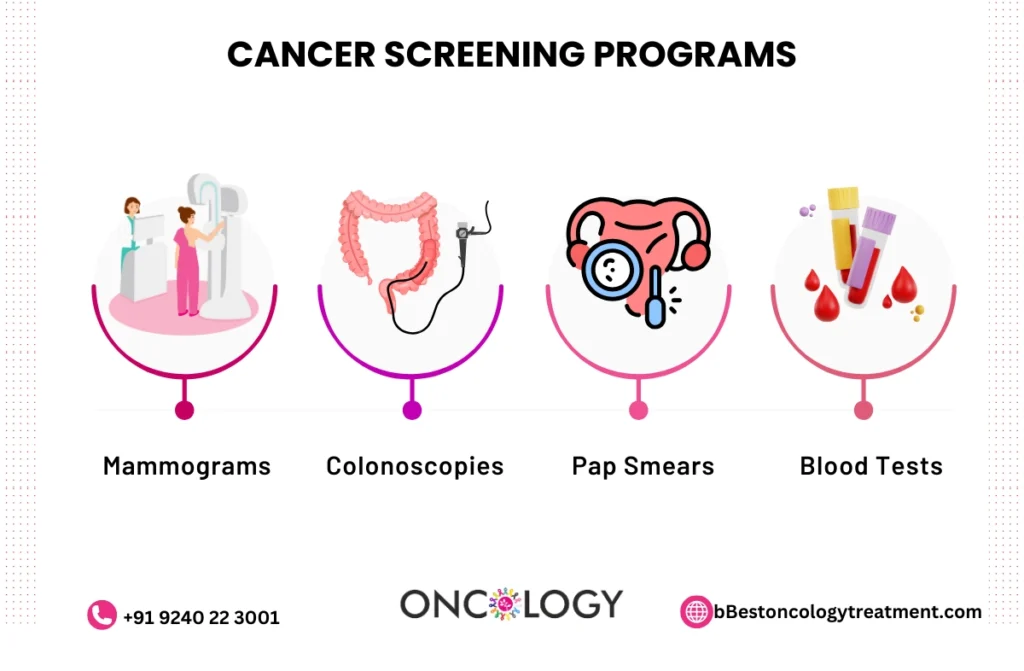Understanding the 8 signs of cancer is essential for early detection and timely treatment. Cancer is a complex disease that can affect anyone, but recognizing the warning signs can save lives. This blog will guide you through what cancer is, the types and causes, and the 8 early signs of cancer to look out for. Whether you or someone you know is concerned, this information could be life-changing. If you want the best guidance and treatment, consider consulting the best oncology experts.
What Is Cancer?
Cancer occurs when abnormal cells in the body grow uncontrollably, forming a tumor or affecting normal bodily functions. It can develop in almost any part of the body and often goes unnoticed until symptoms appear. Recognizing what indicates cancer early can help improve outcomes significantly.

Types of Cancer
There are more than 100 types of cancer, but some common ones include:
- Lung Cancer: Affects the lungs and is often linked to smoking. Symptoms may include persistent cough, shortness of breath, and coughing up blood. Awareness of the 8 signs of cancer related to lung health is crucial for early diagnosis.
- Breast Cancer: Typically affects women but can also occur in men. Symptoms include lumps, nipple discharge, or changes in breast shape or size. Mammograms and knowledge of the 8 early signs of cancer can make a difference in survival rates.
- Prostate Cancer: Common in men, affecting the prostate gland. Symptoms include difficulty urinating, blood in the urine, or pelvic discomfort. Regular screenings help in identifying what are 8 warning signs of cancer specific to men.
- Skin Cancer: Often linked to excessive sun exposure. Symptoms include unusual moles, new growths, or skin discoloration. Regular checks can help detect what indicates cancer in the skin at an early stage.
Each type of cancer has its own unique symptoms, making it essential to understand the 8 signs of cancer across various types.
What Causes Cancer?
Cancer can result from various factors, including:
- Genetic Predisposition: A family history of cancer increases your risk significantly. For instance, mutations in BRCA1 and BRCA2 genes are linked to breast and ovarian cancers.
- Lifestyle Factors: Smoking, poor diet, lack of exercise, and alcohol consumption are major contributors. Understanding these risks helps you recognize what indicates cancer and make healthier choices.
- Environmental Exposures: Radiation and exposure to carcinogens, like asbestos, are common causes. Awareness of these can help prevent exposure-related cancers.
- Chronic Infections: Infections like HPV or Hepatitis B and C can cause cancer over time. Early treatment and vaccinations are key to prevention.
While not all causes are preventable, being proactive can help you avoid some of the 8 early signs of cancer.
8 Warning Signs and Symptoms of Cancer
Recognizing the 8 signs of cancer is critical for early detection and effective treatment. Here are the most common warning signs:
- Unexplained Weight Loss: Losing weight without trying is a significant red flag. Sudden weight loss of 10 pounds or more, especially without a change in diet or activity, may signal cancers like stomach or lung cancer.
- Persistent Fatigue: Feeling constantly tired, even after sufficient rest, could indicate blood cancers such as leukemia or other cancers causing anemia. Fatigue is one of the 8 early signs of cancer that shouldn’t be ignored.
- Changes in Skin: Skin discoloration, new moles, or changes in existing moles could point to skin cancer. Look out for symptoms like dark patches, yellowish skin, or lesions that do not heal.
- Lumps or Swelling: A lump that doesn’t go away or continues to grow may indicate a tumor. Swelling in the neck, armpits, or groin could signal lymphoma or other types of cancer.
- Chronic Pain: Persistent pain in the back, abdomen, or bones might be associated with pancreatic or bone cancer. Pain that doesn’t respond to medication is often included in what are 8 warning signs of cancer.
- Changes in Bowel or Bladder Habits: Frequent diarrhea, constipation, or blood in the stool may indicate colon cancer. Difficulty urinating or blood in the urine could signal bladder or prostate cancer.
- Unusual Bleeding or Discharge: Unexplained bleeding, such as blood in urine, stools, or vaginal bleeding outside of menstruation, could indicate cancers of the bladder, colon, or reproductive organs.
- Difficulty Swallowing or Persistent Cough: A sore throat, chronic cough, or hoarseness lasting for weeks could be a symptom of throat or lung cancer. These are common among the 8 signs of cancer affecting the respiratory tract.
If you notice any of these 8 early signs of cancer, consult a healthcare provider immediately. Early detection significantly improves treatment outcomes.
Signs and Symptoms by Type of Cancer
Here are some specific symptoms to look out for, categorized by common cancer types:
- Breast Cancer: Lumps, changes in breast shape, or nipple discharge are common signs. Regular self-examinations can help identify what indicates cancer early.
- Lung Cancer: Persistent cough, chest pain, and difficulty breathing are significant symptoms. Smokers and individuals exposed to secondhand smoke should be particularly vigilant about the 8 signs of cancer.
- Colon Cancer: Blood in stool, changes in bowel habits, or abdominal discomfort are common indicators. Colonoscopies can detect and remove polyps before they develop into cancer.
- Skin Cancer: Changes in moles or the appearance of new growths are early signs. Regularly check your skin using the ABCDE method: Asymmetry, Border irregularity, Color variation, Diameter larger than a pencil eraser, and Evolving size or shape.
Knowing the specific 8 signs of cancer for each type improves your chances of catching it early.
Cancer Prevention
Preventing cancer involves taking proactive steps to reduce risk factors:
- Healthy Eating: A diet rich in fruits, vegetables, and whole grains can lower the risk of many cancers. Avoid processed and red meats.
- Physical Activity: Regular exercise helps maintain a healthy weight and reduces the risk of colon, breast, and endometrial cancers.
- No Smoking: Tobacco use is a leading cause of preventable cancer deaths. Quitting smoking significantly reduces the risk of lung and other cancers.
- Screening and Vaccines: Regular health screenings and vaccines, such as HPV and Hepatitis B, can help detect and prevent cancers early.
Awareness of what are 8 warning signs of cancer can help you take timely action.
What are Cancer Screening Programs?
Screening programs play a vital role in catching cancer early. Common screening methods include:
- Mammograms: For early detection of breast cancer.
- Colonoscopies: To find and remove precancerous polyps in the colon.
- Pap Smears: For detecting cervical cancer early.
- Blood Tests: For tracking overall health and spotting abnormalities that may indicate cancer.
Participating in regular screenings can help identify the 8 early signs of cancer and take necessary action.
Who Does Cancer Affect?
Cancer can affect anyone, but certain groups are at higher risk:
- Older Adults: Cancer risk increases with age, particularly after 50.
- Men and Women: While some cancers are gender-specific, many, like lung and colon cancer, affect both genders equally.
- Family History: A genetic predisposition increases the likelihood of certain cancers. People with a family history should be extra vigilant about the 8 signs of cancer.
How is Cancer Diagnosed?
Cancer diagnosis typically involves multiple steps:
- Physical Exams: A thorough physical exam can reveal external signs like lumps or swelling.
- Imaging Tests: X-rays, MRIs, and CT scans help identify abnormalities.
- Biopsies: Samples of tissue are taken to confirm the presence of cancer cells.
Consulting experts in the Best Oncology field ensures accurate diagnosis and effective treatment plans.
Conclusion
Recognizing the 8 signs of cancer can save lives by enabling early intervention. Whether it’s unusual lumps, unexplained weight loss, or persistent fatigue, knowing these warning signs is critical. For comprehensive care and expert advice, reach out to the Best Oncology professionals.




